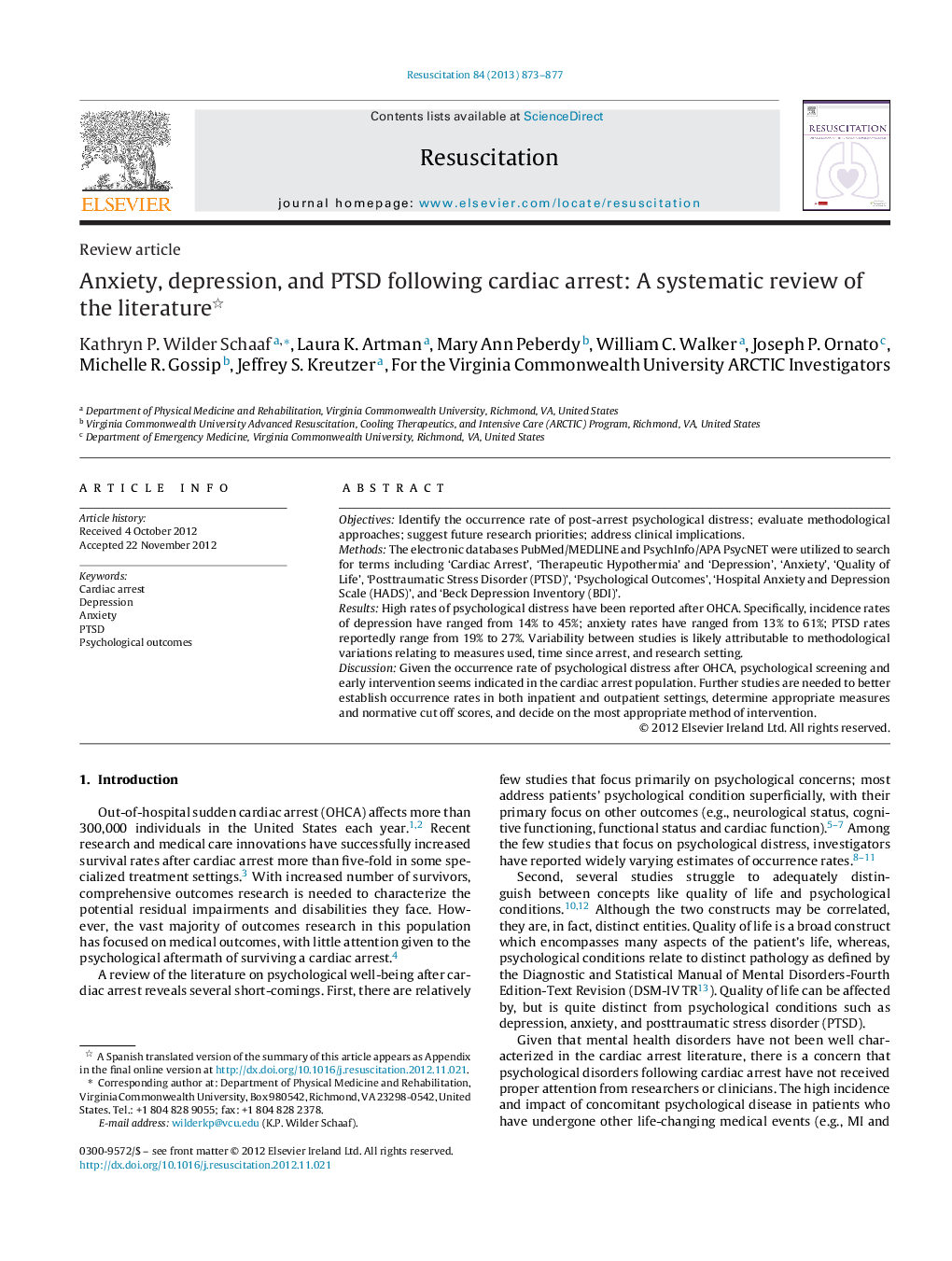| Article ID | Journal | Published Year | Pages | File Type |
|---|---|---|---|---|
| 3008035 | Resuscitation | 2013 | 5 Pages |
ObjectivesIdentify the occurrence rate of post-arrest psychological distress; evaluate methodological approaches; suggest future research priorities; address clinical implications.MethodsThe electronic databases PubMed/MEDLINE and PsychInfo/APA PsycNET were utilized to search for terms including ‘Cardiac Arrest’, ‘Therapeutic Hypothermia’ and ‘Depression’, ‘Anxiety’, ‘Quality of Life’, ‘Posttraumatic Stress Disorder (PTSD)’, ‘Psychological Outcomes’, ‘Hospital Anxiety and Depression Scale (HADS)’, and ‘Beck Depression Inventory (BDI)’.ResultsHigh rates of psychological distress have been reported after OHCA. Specifically, incidence rates of depression have ranged from 14% to 45%; anxiety rates have ranged from 13% to 61%; PTSD rates reportedly range from 19% to 27%. Variability between studies is likely attributable to methodological variations relating to measures used, time since arrest, and research setting.DiscussionGiven the occurrence rate of psychological distress after OHCA, psychological screening and early intervention seems indicated in the cardiac arrest population. Further studies are needed to better establish occurrence rates in both inpatient and outpatient settings, determine appropriate measures and normative cut off scores, and decide on the most appropriate method of intervention.
